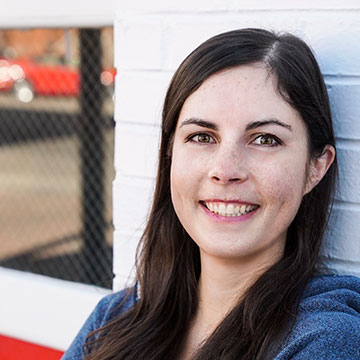11 Creative Ways to Save for Emergencies When You’re Broke

- Even small, temporary changes can help you make progress in saving.
- Get creative with money-saving strategies. Even if you’re already frugal, it may be possible to get what you need for less than you’re spending.
- Knowing how to save when you’re broke is a valuable skill that could help you build financial security for the rest of your life.
An emergency fund is one of the most important pieces of your financial toolkit. It’s like an oxygen mask for your money. It keeps you safe so you’re able to manage other areas of your finances, like paying off debt.
You don’t need to be rich to save up an emergency fund. Anyone can do it, but you might need to get creative. That’s okay—flexing your money-saving muscles once in a while helps keep them sharp, so you’re prepared to weather any financial storms.
Can You Save for Emergencies While in Debt?
Yes. It can be tricky to save for emergencies while paying down debt, but it’s definitely doable. One good strategy is to save up a starter emergency fund first. Save $1,000 to start. Then, work toward having enough money to cover one month’s worth of expenses.
At that point, turn your attention on your debt payoff strategy. You can resume saving up your emergency fund once you deal with your debt.
It takes time to build up an emergency fund, so be patient with yourself and keep working at it. Having money set aside could help you get through a financial emergency and avoid needing debt relief in the future. Even a small emergency fund could help you avoid more debt while you work your way out of existing debt. In the long run, it’s a good idea to keep three to six months’ worth of your expenses in your emergency fund.
Ways to Save for Emergencies When You’re Broke
Saving some for emergencies when you aren’t flush with cash is a matter of tweaking the levers in your budget to lower your spending or add income. Any gap you create between your income and your expenses is what you can use to build your savings or pay down debt.
You’ve probably already heard familiar suggestions like starting a budget, signing up for a side hustle, or clipping coupons. Those are all great ideas, but they don’t apply to everyone, especially if you’re trying to learn how to save when you’re broke. Instead, try to think outside the box.
Here are a few ideas to get you started:
Check community assistance. Call or visit 211.org to get help finding financial support you may be eligible for in your area, like grants to fix up your home, or free food.
Bank sign-up bonuses. Look for banks offering a sign-up bonus for opening a new checking or savings account. If you meet the bank’s requirements, you could earn several hundred dollars just for switching banks.
Try no-spend hobbies. Things like geocaching, hiking, or birdwatching cost little to nothing, can be done with friends, and can improve your physical and mental health.
Track your debt and savings progress. Try filling in a printable debt or savings tracker to help you stay motivated. Put it up somewhere you see every day, like your fridge door.
Shop your library. Rather than buying new books or movies, or paying for subscription services like Netflix, try visiting your library first. Many public libraries allow you to check digital products out for free. You might also get free passes to your local zoo, museum, or other attractions.
Cancel your internet. Check in your area for affordable internet plans for low-income folks, or use publicly available wi-fi networks. Some libraries allow you to check out a portable hotspot device.
Negotiate your bills. Ask if they’ll lower your interest rate, wave fees, give you a payment plan, or offer some other kind of financial support. They may well offer something, and any amount can help.
Find a local Buy Nothing group. Buy Nothing is a hyper-local online group that helps connect neighbors looking to get rid of useful items for free.
Do surveys and Swagbucks. Online survey websites and sites like Swagbucks pay out a small amount of money for completing simple tasks. You can often do them on your couch while watching TV, on the bus, or anywhere you have a few spare moments.
Grow your own food. If you have space, growing high-value vegetables (you can find examples online) could help you save money on groceries. You can also sign up for a gleaning program in your area to pick other people’s unused fresh produce.
Get discount produce. Many sellers offer steep discounts on leftover produce at the end of a farmers’ market. You can buy in bulk and process it to store for later.
Remember, these don’t have to be permanent changes. Even cutting out one bill can make a big difference over a single year. You’ll have more money you could save or apply toward your debt. You can always resume those expenses later if you don’t want to live without them forever.
It’s Possible to Save Money on Any Income
Sure, it’s easy to save money if you’re wealthy, but that doesn’t teach you any skills or how to be resourceful. Being broke can be a unique opportunity to find out just how far you can adjust the levers in your budget. Many people are surprised to learn just how little they truly need to spend to stay happy. That’s especially true when you’re working on a tough goal like saving and paying off debt at the same time.
Looking for debt relief in Lubbock, TX or across the country? The first step is the most important one—learn more.
Insights into debt relief demographics
We looked at a sample of data from Freedom Debt Relief of people seeking debt relief during December 2025. The data provides insights about key characteristics of debt relief seekers.
Debt relief seekers: A quick look at credit cards and FICO scores
Credit card usage varies significantly across different age groups, reflecting diverse financial needs and habits.
In December 2025, the average FICO score for people seeking debt relief programs was 593.
Here's a snapshot by age group among debt relief seekers:
| Age group | Average FICO 9 credit score | Average Credit Utilization |
|---|---|---|
| 18-25 | 582 | 82% |
| 26-35 | 584 | 78% |
| 35-50 | 588 | 77% |
| 51-65 | 590 | 75% |
| Over 65 | 607 | 68% |
| All | 593 | 74% |
Use this data to evaluate your own credit habits, set financial goals, and ensure a balanced approach to managing credit throughout your life.
Student loan debt – average debt by selected states.
According to the 2023 Federal Reserve Survey of Consumer Finances (SCF) the average student debt for those with a balance was $46,980. The percentage of families with student debt was 22%. (Note: It used 2022 data).
Student loan debt among those seeking debt relief is prevalent. In December 2025, 27% of the debt relief seekers had student debt. The average student debt balance (for those with student debt) was $48,703.
Here is a quick look at the top five states by average student debt balance.
| State | Percent with student loans | Average Balance for those with student loans | Average monthly payment |
|---|---|---|---|
| District of Columbia | 34 | $71,987 | $203 |
| Georgia | 29 | $59,907 | $183 |
| Mississippi | 28 | $55,347 | $145 |
| Alaska | 22 | $54,555 | $104 |
| Maryland | 31 | $54,495 | $142 |
The statistics are based on all debt relief seekers with a student loan balance over $0.
Student debt is an important part of many households' financial picture. When you examine your finances, consider your total debt and your monthly payments.
Regain Financial Freedom
Seeking debt relief can be the first step toward financial freedom. Are you struggling with debt? Explore options for debt relief to regain control of your finances. It doesn't matter how old you are or what your FICO score or credit utilization is. Take the first step towards a brighter financial future today.
Show source
Author Information

Written by
Lindsay Vansomeren
Lindsay is a writer for Freedom Debt Relief. She's passionate about helping people learn how to manage their money better so that they can live the life they want. She enjoys outdoor adventures, reading, and learning new languages and hobbies.

Reviewed by
Kimberly Rotter
Kimberly Rotter is a financial counselor and consumer credit expert who helps people with average or low incomes discover how to create wealth and opportunities. She’s a veteran writer and editor who has spent more than 30 years creating thousands of hours of educational content in every possible format.